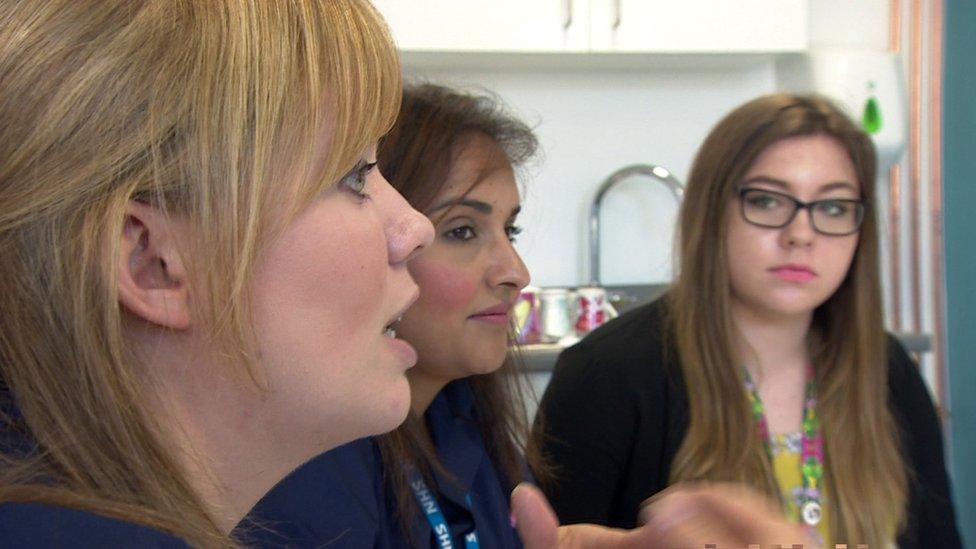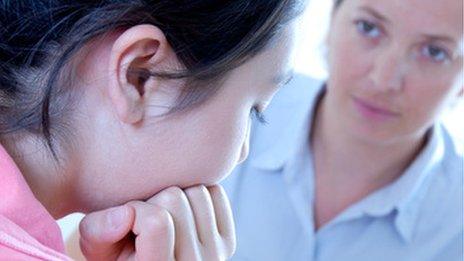Red tape 'stops school nurses doing job'
- Published

School nurses play a key role in promoting pupils' health and well-being and advising on sex and relationships education
Child protection work and excessive bureaucracy are diverting school nurses from their key role of promoting children's well-being, argues a report.
The Children's Commissioner for England, external says nurses are increasingly having to deal with cases rejected by social workers.
Of 800 nurses surveyed, 40% said they were too often dissatisfied with social workers' responses to referrals.
Council leaders urged ministers to invest more in local services.
The nurses questioned said they were finding it harder to successfully refer children at risk to social services because of some councils' increasingly high thresholds for child protection intervention.
'Front line'
And this had led to school nurses undertaking some of the early stage child protection work which used to be carried out by social workers, they said.
A fifth of school nurses said they felt their child protection caseload, paperwork and other activities associated with it was limiting their capacity to carry out other duties.
And this means that school nurses are increasingly finding it hard to carry out their key role in supporting and promoting children's health and well-being as well as sex and relationship education, says the report.

School nurses say paperwork is one factor preventing them from carrying out their key role
Many of the nurses questioned described how bureaucratic and reactive work was affecting their ability to build relationships with children and help advise them.
Reduced time for preventative work meant there were fewer opportunities to spot signs of abuse or build trust so children could talk about difficult issues, they said.
Katie Faulkner, a school nurse at Health Futures University Technical College in West Bromwich, told the BBC she believes more contact time with students in schools and colleges is essential.
"If we are going in and explaining then people see us more. That would make us visible.
"The paperwork is protecting yourself but I think we have to have more contact time to show our face and be visible."
'Significant barriers'
Children's Commissioner Anne Longfield said school nurses were among the key professionals at the front line "identifying abuse or neglect, as well as supporting children with a host of other issues - whether that's mental health, age appropriate relationships and sex education or healthy eating".
She added: "Being available for children for face-to-face time is irreplaceable.
"It is clear from this research that school nurses face significant barriers in working directly with children and young people, with paperwork getting in the way."
The Local Government Association, which represents councils in England and Wales, agreed that school nurses should be able to work directly with children rather than spending too much time on paperwork.
Izzi Seccombe, chairwoman of the LGA's community well-being board, said many local authorities were looking at ways of redefining the role of school nurses to achieve this.
However, she added that paperwork was a requirement of the safeguarding process.
"School nurses can play a really important role in the early identification of any child protection issues, but for proper safeguarding to be carried out, there needs to be more investment by government in local services," said Ms Seccombe.
- Published13 April 2013

- Published7 July 2016
